=LOOKUP("C",{"a","b","c","d";1,2,3,4}) looks up "C" in the first row of the array, finds the largest value that is less than or equal to it, and then returns the value in the last row that's in the same column.
Input the formula: =LOOKUP("C",{"a","b","c","d";1,2,3,4}). Press Enter to get the result.

| 19.10.LOOKUP |
| 19.10.1. | LOOKUP looks up values from a one-row or one-column range or an array | 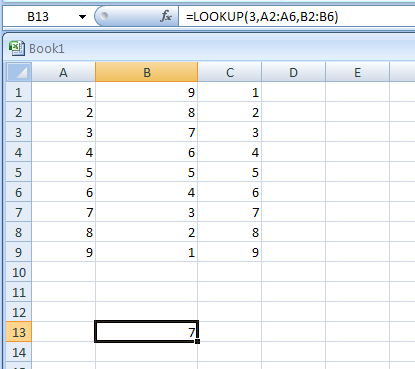 |
| 19.10.2. | =LOOKUP(5,A2:A6,B2:B6) looks up 5 in column A, matches the next smallest value (3), and returns the value from column B that's in the same row | 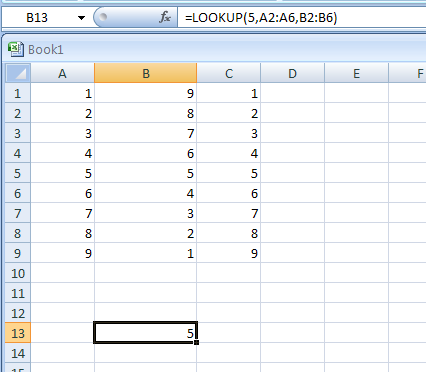 |
| 19.10.3. | =LOOKUP(6.66,A2:A6,B2:B6) looks up 6.66 in column A, matches the next smallest value, and returns the value from column B that's in the same row | 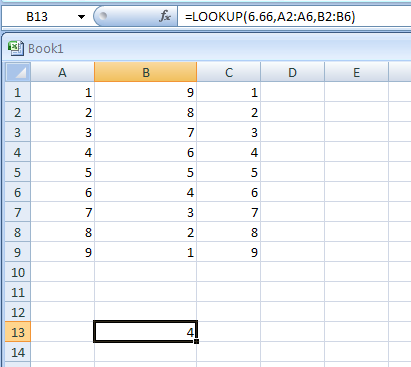 |
| 19.10.4. | =LOOKUP(0,A2:A6,B2:B6) looks up 0 in column A, and returns an error because 0 is less than the smallest value | 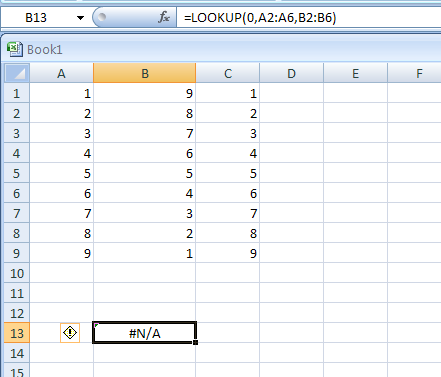 |
| 19.10.5. | LOOKUP(lookup_value,array) |  |
| 19.10.6. | =LOOKUP("abcd",{"a",1;"b",2;"c",3}) |  |
| 19.10.7. | =LOOKUP(A3,{3,6,7,8,9},{"F","D","C","B","A"}) | 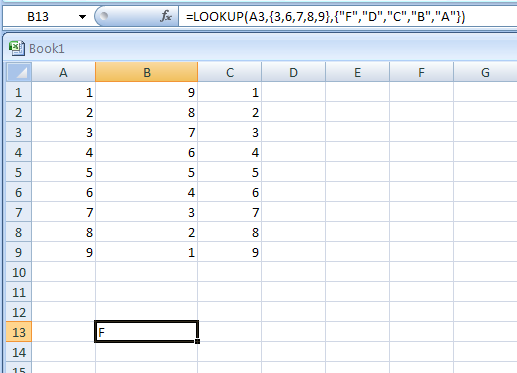 |
| 19.10.8. | =LOOKUP(A4,{0,70,73,77,80,83,87,90,93,97},{"F","D+","C-","C","C+","B-","B","B+","A-","A","A+"}) |  |